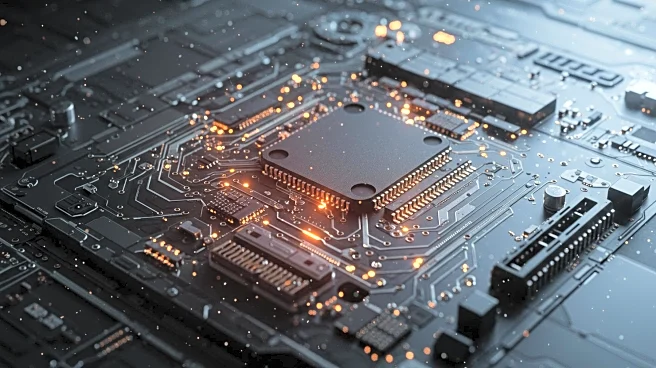What is the story about?
What's Happening?
The U.S. government, under President Trump, has announced plans to acquire a 10% stake in Intel, a move aimed at bolstering the semiconductor industry. This decision comes as Intel CEO Lip-Bu Tan is restructuring the company to focus on core businesses and compete with rivals like Nvidia. The agreement follows discussions between Trump and Tan, where Trump initially pushed for Tan's resignation due to perceived conflicts of interest. The acquisition is seen as a strategic partnership to enhance Intel's position in the semiconductor market.
Why It's Important?
This acquisition marks a significant shift in U.S. policy, as government ownership in private companies is rare. The move is intended to strengthen the U.S. semiconductor industry, which is crucial for national security and technological leadership. By taking a stake in Intel, the government aims to support domestic chip production, reducing reliance on foreign manufacturing. This could benefit the U.S. economy by securing jobs and fostering innovation in a critical sector. However, it also raises questions about government involvement in private enterprise.
What's Next?
The deal is expected to be finalized soon, with potential implications for Intel's strategic direction. The government may influence Intel's decisions to ensure alignment with national interests. This could lead to further investments in U.S. manufacturing facilities and collaborations with other tech companies. The success of this partnership may set a precedent for similar government interventions in other industries deemed vital for national security.















